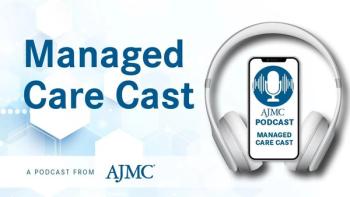
Health System
Latest News
Latest Videos

Podcasts
CME Content
More News

Roy Mathew, MD, discusses integrating nephrology and cardiology to bridge the gap in patient adherence and care delivery.


New treatments, care gaps, and cardiac monitoring were major focuses in cardiovascular news this year.

Patients with generalized myasthenia gravis face significant barriers to diagnosis, creating the need for improved patient–health care interactions.

This study found that certain characteristics in linked electronic health record data across episodes of care can help identify patients with Alzheimer disease and related dementias at high risk of 30-day readmissions.

With ACA subsidies expiring, experts warn coverage losses could worsen access to behavioral health care and emergency department strains.

Blinatumomab enhances survival in pediatric B-cell ALL, yet homecare challenges hinder its outpatient delivery.

A review of 560 FDA-approved drugs found the FDAAA did not change overall time to first postmarket safety action, but some actions occurred earlier.

As value-based care mandates expand, a new survey highlights documentation burdens and burnout risks.

Self-pay emergency department prices rose significantly from 2021 to 2023, especially at for-profit and system-affiliated hospitals, highlighting growing affordability challenges for uninsured and underinsured patients.

The guidelines highlight the need for lifelong obesity management, early diagnosis, comorbidity prevention, and patient-centered care.

After 8 months of treatment with mavacamten, 5% of patients developed new atrial fibrillation or flutter and 4% developed heart failure.

Caregivers face communication challenges in coordinating patient care for older adults, highlighting the need for improved support and training.

This study examines the clinical settings of first-time psychotic spectrum disorder diagnoses in an integrated health system.

Only 4% of NIH prevention projects target health disparities, revealing a major gap between equity research and real-world implementation.

Experts at AHA 2025 outlined how digital tools, inclusive trials, and safer deprescribing can reshape cardiovascular care for aging adults.

A multidisciplinary approach that includes addressing social determinants of health reduces time to remission despite higher initial costs.

Different cultural, linguistic, and systemic barriers could impact how Indigenous and Hispanic women access menopause care, said Lisa Taylor-Swanson, PhD.

Nirsevimab significantly reduced RSV hospitalizations in infants, reinforcing public health recommendations for its use during the RSV season.

Adults with diabetes were 24% less likely to visit an emergency department in 2021 than in 2019.

Lindsey Valenzuela, PharmD, explains how value-based models empower a single pharmacist to manage multiple layers of these disease states.

Lindsey Valenzuela, PharmD, explains how cost, coverage gaps, and tech literacy hinder women’s access to early arrhythmia detection tools.

Lindsey Valenzuela, PharmD, explains how atypical symptoms, research gaps, and care inequities delay arrhythmia detection in women.

Telemedicine improved the quality of life and inhaler technique among patients with advanced-stage chronic obstructive pulmonary disease (COPD).

A retrospective multicenter study found that patients with heart failure discharged by noon had higher short- and long-term mortality and increased early readmission rates compared with afternoon discharges.





















